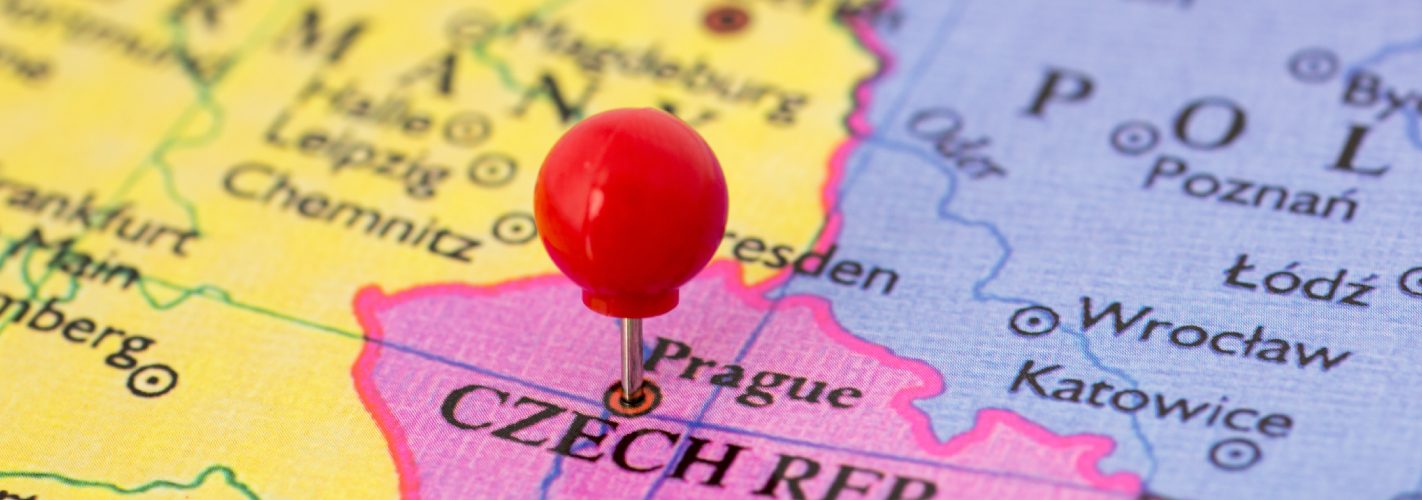Smoke clears over the charred rubble of a warehouse in Vrbetice, and the realization dawns that 50 metric tons of stored ammunition possibly intended for Ukraine had gone up in flames and two Czech citizens had died in the blast. A Novichok nerve agent smeared on the door handle of former GRU officer Sergei Skripal’s Salisbury, UK home poisons both the Russian defector and his daughter. The two men responsible for both events are officers in GRU’s Unit 29155, tasked with sabotage, subversion, and assassination.
Sounds like something out of a Cold War spy thriller, right? But it is not. This is happening right now in the Czech Republic, the United Kingdom and other locations in Europe. And it has a direct effect on U.S. security.
In a particularly colorful episode, in 2016 a GRU operative Ali Fayad, was charged for arms—for-drugs deals. Fayad was arrested in Prague in a DEA sting, and while the Czech government debated whether to extradite him to America, GRU operatives devised a fantastic scheme involving a staged kidnapping in Lebanon. The subsequent “hostage exchange” saw Fayad released in exchange for several Czech citizens, including a Czech military intelligence officer. This operation kept Fayad out of U.S. custody, where he might have made a deal to exchange GRU secrets for a more lenient sentence. That episode was largely overlooked at the time, but bears more detailed scrutiny now in light of the recent revelations about GRU activity in Czechia.
The Czech Republic, in particular, has long been a staging area for Russian intelligence operations. After liberation in 1945 the Communists solidified their power in post-war Czechoslovakia. In time, they destroyed democracy in Czechoslovakia. For more than four decades the Czechs and Slovaks lived under a totalitarian government as a Soviet satellite. With the collapse of the Soviet empire in 1989, Czechoslovakia freed itself from Soviet domination. In 1993 Czechoslovakia peacefully separated into two new countries, the Czech Republic and Slovakia. The Czech Republic, or Czechia, has become one of the most stable and prosperous countries in Central Europe.
But having visited Czechoslovakia in 1992, just prior to the separation, I can tell you that Russian influence in the region still lingered, and not just in the drab Communist-bloc style buildings and architecture.
Today, Czech President Milos Zeman is widely known to be very pro-Russia. In fact, he is considered Russian President Putin’s puppet. While the U.S. State Department will say that Zeman does not have much power and is merely a figurehead, that his role is largely ceremonial, he does have the powers of appointment. Zeman appoints central bank policy makers as well as the Prime Minister. He also sets the country’s foreign policy agenda.
One of Zeman’s appointments was Prime Minister Andrej Babis, his close political ally. Babis is not only a former member of the Communist party, but allegedly also a former Soviet KGB asset and officer of the StB, the Czechoslovak secret police force. Babis is now the second richest man in the Czech Republic and the owner of two of the largest Czech newspapers. As Prime Minister, Babis is the most powerful leader in the country. Both GRU operations, Vrbetice 2014 and Fayad 2016, occurred when Babis and Zeman were in power. At the time Babis was a powerful Minister of Finance and through his party also in control of the Ministry of Defense.
Recent years have seen Russian and Czech relations becoming increasingly fraught with problems. And though the Czech counterintelligence service, the BIS, has been sounding the alarm for years, Russian activity in the Czech Republic has recently reached a crescendo. BIS is rudely criticized by Zeman but praised by allies for their professionalism.
The two explosions at the munition depot in Vrbetice in 2014, in October and December, were publicly announced to have been the work of two Russian GRU officers, Col. Alexander Mishkin and Col. Anatoly Chepiga. While President Zeman has stated that “there is neither proof nor evidence” that the two Russian GRU officers were at the arms depot prior to the October explosion, Prime Minister Andrej Babis has announced that investigators from the Czech counterintelligence and security services had provided “unequivocal evidence” that the two men were involved.
The two Russian intelligence officers being sought in connection with the explosions are the same GRU officers accused of the nerve-agent poisoning of Russian double agent Sergei Skripal in 2018. Mr. Skripal and his daughter fell ill after the nerve agent Novichok was smeared on the door handle of his Salisbury, England home. Skripal had provided MI6 with secrets from his time in Russian military intelligence.
The revelations about GRU involvement in the explosions has set off a string of tit-for-tat moves between Prague and Moscow, with the Czech government announcing the expulsion of eighteen Russian diplomats it considered to be spies and Russia following up with the expulsion of twenty employees at the Czech Embassy in Moscow. This prompted the Czech Foreign Minister to state that the number of people allowed by the Czech Republic and Russia at their respective embassies would be limited to thirty-two. The Russians were given until the end of May to cut the number of personnel at the embassy in Prague by sixty-three people. The two sides continue to swap ultimatums in what is considered to be the worst spat between the former Cold War allies since Communist rule ended in 1989.
But the GRU hasn’t been operating in a vacuum. Their allies within Czechia, both in the government and the private sector, were instrumental in achieving their goals. It will be interesting to see how Czechs react, when they learn that their fellow citizens (and officials) cooperated with a hostile intelligence service. Will the GRU’s high level of activity and influence in the Czech Republic continue now that they have been exposed? Time, and the BIS, will tell.

















